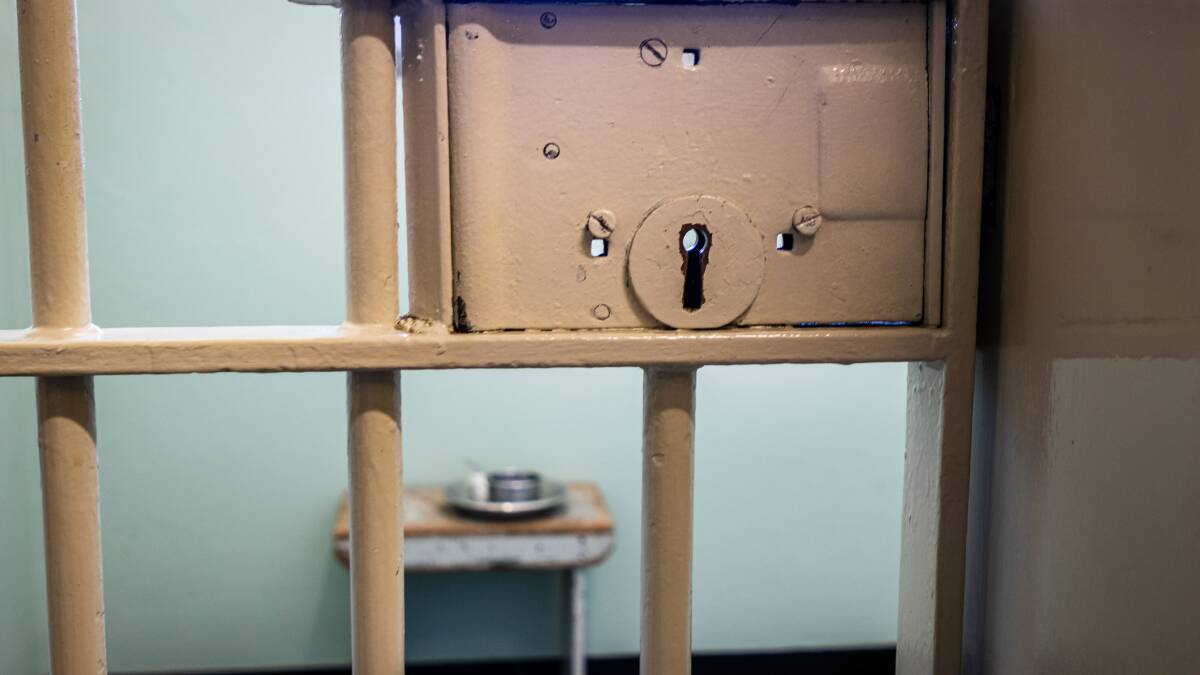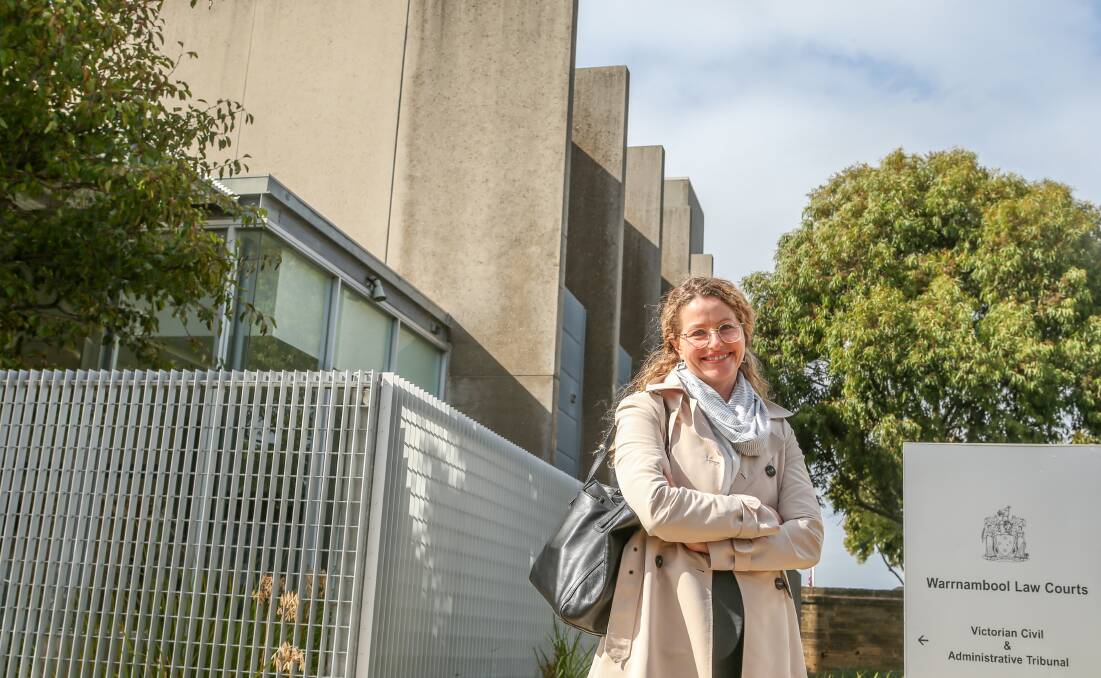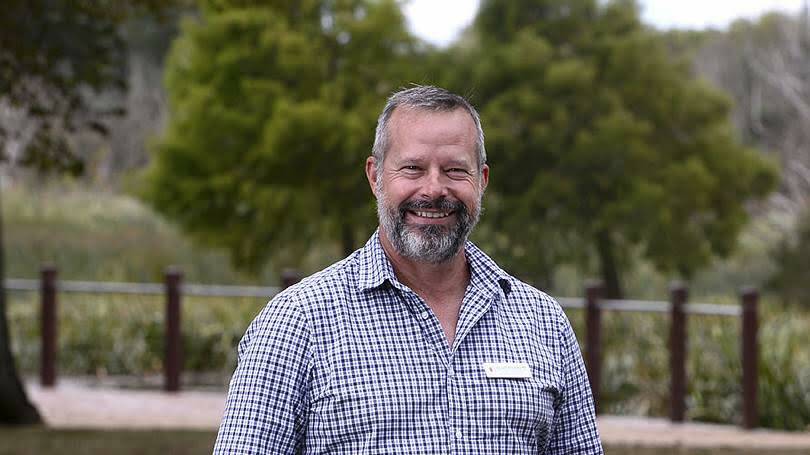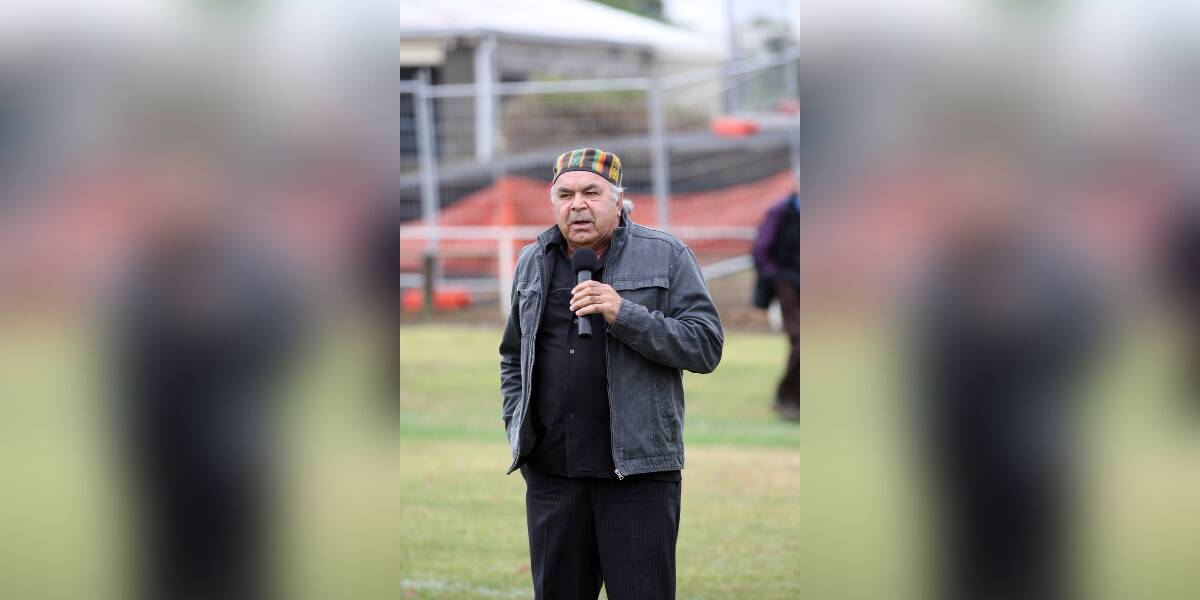
The state's prison population has almost doubled over the past two decades as inmates spend more time behind bars for serious offences, but some fear the system is missing the mark on rehabilitation.
Subscribe now for unlimited access.
$0/
(min cost $0)
or signup to continue reading
A report released this week by the Sentencing Advisory Council showed penalties relating to drugs, sexual assault, violence and murder were getting longer, contributing to the state's rising prison population.
It said the increase was also attributed to more offenders being sentenced to shorter prison sentences rather than community-based ones.
In 2000, 67 in every 100,000 Victorians were in prison. By 2019, that had increased to 123 in every 100,000.
Despite the growth, fewer serious offences are being sentenced in the state's courts each year.
The Standard recently reported a number of south-west people being jailed for more than a decade over violent and sexual offences.
In May a Warrnambool man was sentenced to eight years' imprisonment after the savage beating of an Allansford man.
Two months later two high-end sex assault offenders copped a combined 29 years' jail.
And a Glenelg district man found guilty of more than 20 charges including incest with his two young daughters was jailed for more than 20 years.

Detective Senior Sergeant Chris Asenjo, who oversees the Warrnambool-based sex offences and child abuse investigation team, said sexual offending shattered families and had a lifetime impact on victims.
"Short of a homicide, sexual offences are considered some of the most serious offending in the criminal statute book," he said at the time.
"I think we're seeing a shift where courts are rightly listening to the community."
And while the report showed sentencing outcomes in the higher courts - those above the magistrates court - were more severe now than 20 years ago, the number of cases heard in those courts had dropped or remained stable.
It said while the decrease could be attributed to offences being less prevalent, it was also likely that plea deals saw matters being finalised in the lower court.
Opposition Attorney-General Michael O'Brien said with Victoria having the worst court backlogs in the country, it was important that serious crimes weren't treated lightly by a government "desperate to be seen to be reducing the backlog".
Harsher bail laws, rehabilitation questioned
Law Institute of Victoria's Tania Wolff said the prison population had increased significantly as a result of changes to Victoria's Bail Act, which occurred after it was revealed James Gargasoulas was on bail when he killed six people in Melbourne's Bourke Street mall.
The changes had resulted in an unprecedented amount of people on remand, Ms Wollf said.
She said it was also clear serious offenders were spending more time in jail.
But Ms Wolff said evidence showed it was "far more" effective to deal with the underlying causes of crime to make the community safer, rather than simply resorting to imprisonment as a default option.
"In prison there aren't the supports and programs that help people deal with that, and if they leave prison and go back to the environment or circumstances which don't afford any opportunity for rehabilitation, then you're not going to change the individual or their motivations in any tangible respect," she said.
"We need to see commitment from government that they will address this issue through meaningful reform, rather than short-term 'tough on crime' approaches."

Western Victoria MP Stuart Grimley, who is the state's leader of Derryn Hinch's Justice Party, said when it came to the rehabilitation of offenders, the state government was missing the mark.
He said his office attended a correctional facility last year and learnt a family violence offender could only complete three months of a nine-month rehabilitation program.
He said inmates could be released from the facility before they finish the program, with no obligation to finish it on the outside.
Mr Grimley said he wanted to see sentences delivered that ensured offenders completed rehabilitation programs in, or outside, of the prison system.
He said Derryn Hinch's Justice Party was the only party that had committed to not reverting bail and remand laws back to pre-Gargasoulas legislation.
Mr Grimley said those laws ensured repeat offenders weren't roaming the streets without proper assessment and sentencing by the courts.
But he said there's a "huge gap" in access to rehabilitation programs and victims were being let down.
"Being on remand should be a perfect opportunity to get clean, get access to programs and reset, unfortunately that's just not happening," he said.
"What's the point of keeping offenders on remand if you're not going to engage and treat them?"
Disproportionate incarceration rate
Gunditjmara Elder Lenny Clarke, who sits in on the Koori Court in Warrnambool, said he was concerned strict bail laws and straight sentences (where people serve the entirety of their sentence in jail and not in the community) were leading to the over-population of Indigenous prisoners.
He said lengthy periods of custody led Indigenous people to become institutionalised and a "revolving prison door".
"It holds us back from advancement. Jail doesn't teach you anything if there's no rehabilitation," he said.
"Our people are over-populating the justice system and after having so many inquiries and royal commissions, nothing has changed.
"We need to find alternatives to jail, they're draconian."
Indigenous people make up nine per cent of the state's inmates despite representing just .8 per cent of the population.
"There's not an Aboriginal family in Australia that hasn't had some member of their family institutionalised, whether it's in children's homes, youth training centres or the big house (jail)," Uncle Lenny said.
"It really impacts not only the individual but also the family and ultimately the community."
Uncle Lenny said he wasn't asking for leniency.
"I'm just saying the system doesn't work for us," he said.
"You have to have some type of (punitive factor) but we need to be looking for alternatives, to a system that focuses on us helping people live a good life, without crime."

A state government spokeswoman said rehabilitation and reintegration programs were being delivered "across the correctional system in partnership with community and external organisations".
"We're delivering a correctional system that keeps Victorians safe, and helps prisoners break the cycle of re-offending and gets their lives back on track," she said.
"We have a strong focus on tackling the root causes of offending through early intervention - to prevent crime, reduce re-offending and provide genuine opportunities for Victorians to turn their lives around."
The spokeswoman said under the Sentencing Act, courts could mandate both time in custody and community correction orders.
"Some programs can be delivered while people are in custody and also out in the community, where they remain mandatory," she said.
Member for South West Coast Roma Britnell said sentencing was a very nuanced exercise and should not be a one-size-fits-all approach.
"There are several factors to be considered including deterrence, rehabilitation, denunciation and punishment," she said.
"As lawmakers, I believe governments do have a responsibility to ensure offenders have access to any array of services needed to help with their rehabilitation - whether that be drug and alcohol counselling, education and training, and general life skills.
"Breaking the cycle of recidivist offending is extremely important, so having these services both inside and outside of prison is crucial."
The Victorian Budget 2022-23 included more than $21 million over four years to strengthen reintegration services for sentenced prisoners. The funding will supplement current programs and allow for additional pre-and-post jail release placement for high-risk people.
A Productivity Commission report on government services for 2020-21 showed Victoria had the second lowest imprisonment rate of all jurisdictions, and the lowest proportion of Indigenous prisoners in custody.
IN OTHER NEWS
- Comprehensive investigation into sacking of CEO continues two years on
- Regional buyers out-pace urbanites by a country mile
- Kristy Sellars finishes second in America's Got Talent
- Overtaking driver 'running out of road' clocked at 145km/h
- Hampden league grand final teams: Captain under injury cloud named
Now just one tap with our new app: Digital subscribers now have the convenience of faster news, right at your fingertips with The Standard:


